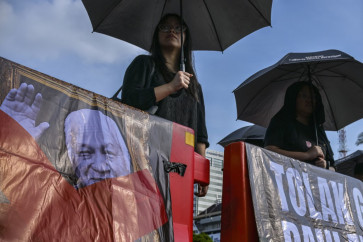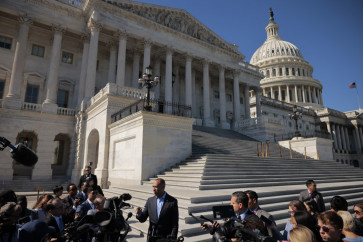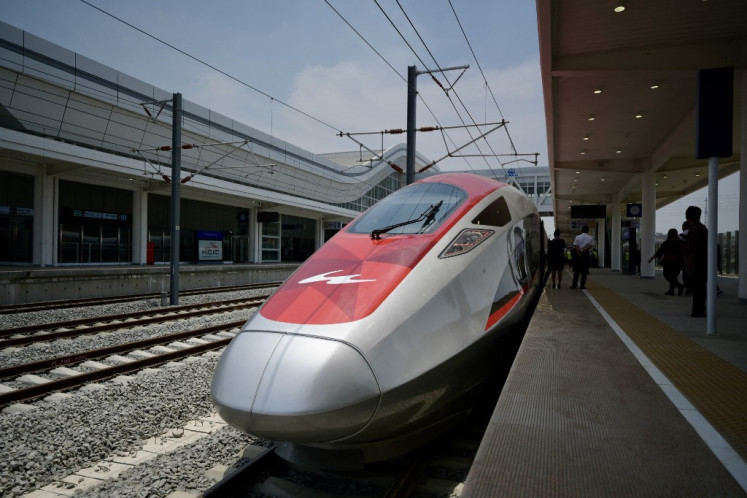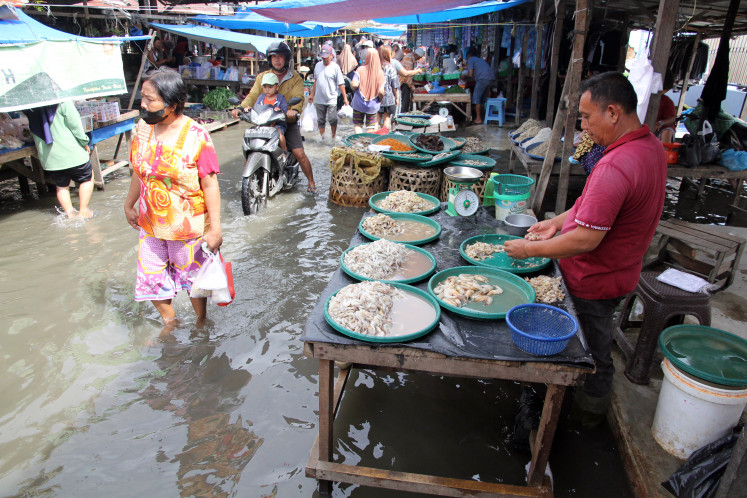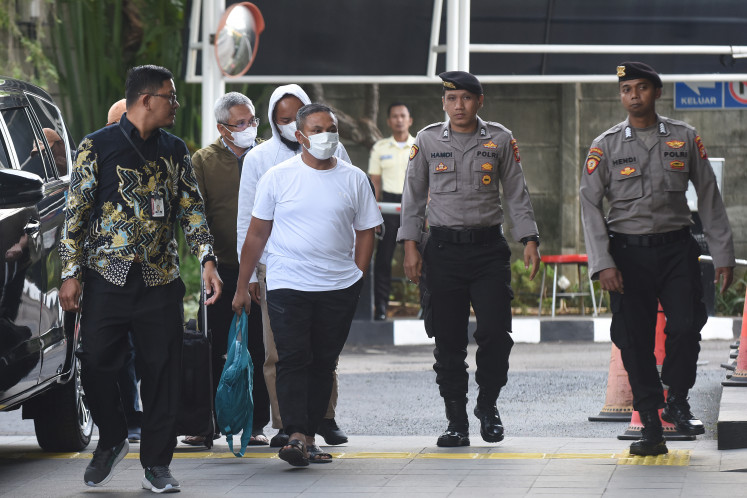Popular Reads
Top Results
Can't find what you're looking for?
View all search resultsPopular Reads
Top Results
Can't find what you're looking for?
View all search resultsASEAN urged to take lead in Indo-Pacific
In between a rising China and a retreating America, Japan wants ASEAN to take a leading role in developing a strategy for the Indo-Pacific region
Change text size
Gift Premium Articles
to Anyone
I
n between a rising China and a retreating America, Japan wants ASEAN to take a leading role in developing a strategy for the Indo-Pacific region.
In cooperation with the Indonesian Institute of Sciences (LIPI), the Mission of Japan to ASEAN held a symposium in Jakarta on Wednesday focusing on Indo-Pacific strategies. The event celebrated the 45th anniversary of Japanese-ASEAN friendship and presented panels of foreign policy scholars from Indonesia, Japan, Vietnam and Singapore.
Kazue Sunaga, ambassador of the Mission of Japan to ASEAN, said Japan’s cooperation with the bloc was key to achieving progress in the development of a strategy. “Indeed, an Indo-Pacific strategy cannot be implemented without ASEAN,” he said.
In his keynote speech, Yuichi Hosoya, a professor of international politics at Keio University, Japan, raised the growing concerns over serious crises in the liberal international order because of the unpredictability of the United States under President Donald Trump and the rapid expansion of Chinese military power, as well as the spread of nationalism and populism in many countries, which makes it harder to find diplomatic compromises.
“Japan could stick to American leadership, but it should play larger role in peace and stability because we’re seeing a retreat of US commitment,” he said, adding that Japan should take a leadership role and fill the vacuum the US had left behind.
Dewi Fortuna Anwar, a research professor at LIPI’s Center for Political Studies, highlighted that existing forums such as the East Asia Summit (EAS) and the ASEAN Regional Forum (ARF) — both ASEAN driven initiatives — should be used to promote cooperation in the Indo-Pacific region.
Dewi said a leader was needed amid rising competition in the Indo-Pacific region, both in the economic growth and various security concerns, particularly in North Korea and the South China Sea.
She said the presence of several competing major powers in East Asia and US-Chinese rivalry had become predominant themes. China’s massive infrastructure projects throughout Asia and the eastern part of Africa, she said, were “seen by some as China’s global economic expansionism with imperialistic undertones”.
Speaking from the symposium’s audience, the third secretary of China’s mission to ASEAN, Shi Wenyu, said China recognized the uncertainties and challenges, but he emphasized the discussion should be paved with “solidarity, not division”, adding that “in China we stick to cooperation and friendship and win-win partnerships and we should be against confrontation, threats and a zero-sum mentality”.
He highlighted the record high trade volumes between China and ASEAN countries last year worth US$514.8 billion, a 13.8 percent year-on-year (yoy) increase, making it the fastest growth between China and any of its major trading partners.
According to an official State Department transcript, the US deputy assistant in the East Asian and Pacific Affairs Bureau, Alex Wong, told a press briefing on Monday that one year after the US introduced the concept of an Indo-Pacific strategy, the upcoming years in the first term of the Trump administration would be the time for formulating one and implementing it.
He said there were already a number of crisscrossing strategies throughout the region, such as India’s Act East Policy, South Korea’s New Southern Policy, Japan’s own Free and Open Indo-Pacific Strategy, Australia’s Foreign Policy White Paper and Taiwan’s new Southbound Policy. “These partners in the region are all seeking to increase political, security and economic ties, particularly with the ASEAN states, and that’s in our interest,” he said.



